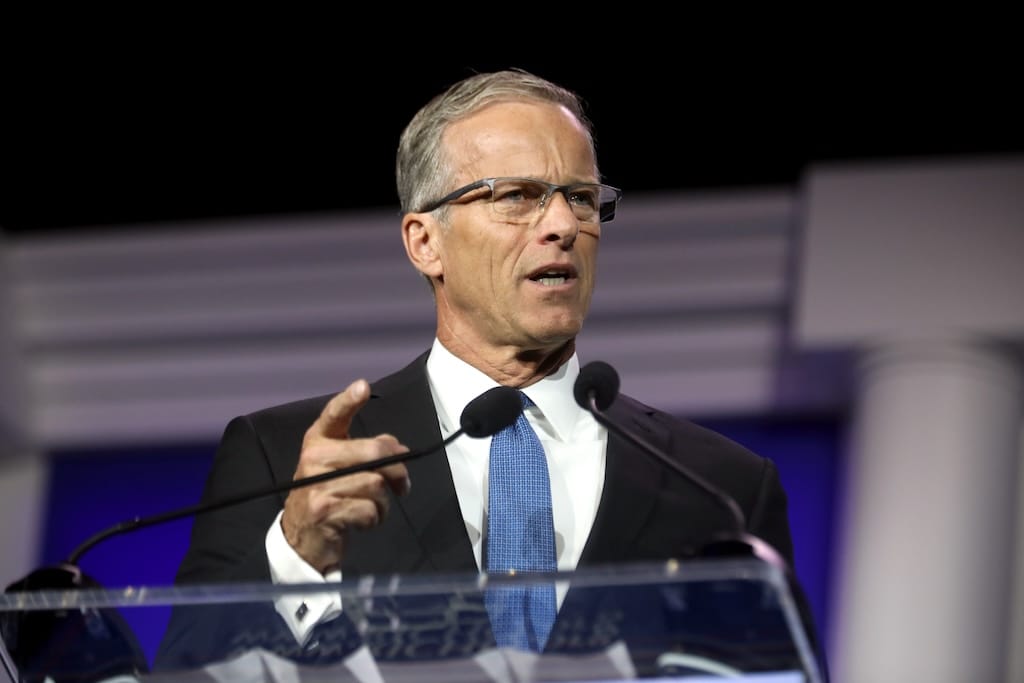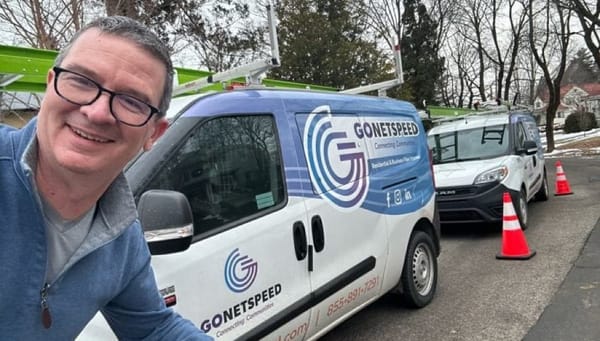Thune and Cruz Introduce Bill to Reinstate FCC Auction Authority
The bill would also require the NTIA to flag 2,500 megahertz of federal spectrum for repurposing.
Jake Neenan

WASHINGTON, March 11, 2024 – Two Senate Commerce Committee Republicans introduced a bill on Monday that would reinstate the Federal Communications Commission’s spectrum auction authority through September 2027.
The Spectrum Pipeline Act of 2024, introduced by senators John Thune, R-South Dakota, and Ted Cruz, R-Texas, would also require the National Telecommunications and Information Administration to identify 2,500 megahertz of federal spectrum for reallocation or sharing with commercial users. That spectrum would have to be identified in the next five years, with at least 1,250 MHz required within two years.

The FCC would be required to use its reinstated authority and auction that spectrum for commercial use.
At least 1,250 megahertz would have to be auctioned for full-powered use within six years of the bill’s passing, with at least 600 megahertz out the door in the first three years. The agency would also have to make 125 megahertz available for unlicensed use within two years.
“To dominate in next-generation wireless technologies, stay ahead of our adversaries, and advance strong economic growth, the U.S. must create a pipeline to expand commercial access to mid-band spectrum,” Cruz said in a statement.
CTIA, an industry group representing major wireless providers, issued a statement supporting the bill. It praised “the needed action to restore the FCC’s auction authority and create a strong pipeline of full-power, licensed spectrum that will support Americans’ growing wireless data use, protect our national security, and infuse real competition in the home broadband market.”
The agency’s authority to auction bands of radio spectrum for commercial use lapsed for the first time in March 2023 amid uncertainty about whether a Defense Department band could be shared. Commission leadership and industry groups have since been pushing lawmakers to reinstate the authority as expanding 5G networks and other technologies continue to drive demand.
“I have a bunch of bands that are sitting in the closet,” FCC Chairwoman Jessica Rosenworcel told lawmakers at a House oversight hearing in November.
The agency released a public notice on March 7 seeking input on ways to open up its inventory of spectrum bands without that authority, in the event Congressional action continues to lag.
In December, a stopgap measure was signed into law allowing the FCC to issue licenses that had been purchased before its authority expired. Another legislative attempt to fully renew the authority for three years stalled after a DoD study found no way to share the 3 GigaHertz (GHz) band without jeopardizing national security.
The White House put forward in November a plan to study almost 2,800 megahertz of federal spectrum for potential repurposing. Brendan Carr, one of the FCC’s two Republican commissioners, and other conservatives have criticized the plan for not mandating any of that spectrum be freed up.








